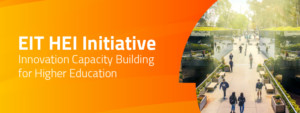Learn about the environmental, economic, legislative and political aspects of deep-sea mining. Join the International Summer School online!
Mining will not disappear in a circular economy due to the growing demand for raw materials driven by global trends, such as population growth and the rise of the global middle class. Moreover, a transition to a climate-friendly, low carbon economy will require a huge amount of raw materials, many of which are listed as critical ones for the European Union. Taking into account the fact that the European Union imports more than 3/4 of its critical raw materials, seabed minerals become an important strategic alternative for establishing a more diverse import market to secure domestic industries against market shocks and increased prices, which is one of the most important elements of Europe’s economic strategy.
The strategic importance of raw materials from the sea, such as polymetallic nodules, seafloor polymetallic sulphides, cobalt-rich crusts, and others, increases constantly. Besides of critical metals, recovery of many other metals and non-metals from marine minerals can contribute to strengthening the European industrial sector. At the same time, the assessment of environmental impacts and risks of deep-sea mining and how to minimize the impacts is recognized as a priority task on the way towards the establishment of the deep-sea mining industry.
Deep-sea mining is still a new area of human activity, so knowledge in this field is limited. Establishment of the industry in Europe requires full utilisation of the potential of industrial symbiosis to develop a range of innovative technologies, infrastructures, trade measures and policies. The demand for a new generation of skilled people entering the industry, universities, and research is therefore gradually increasing. In response to that need, the EIT International Summer School “From Dredging to Deep-Sea Mining” was initiated.
In 2020, the EIT International Summer School “From Dredging to Deep-Sea Mining” is offered as an online course. By bringing together the leading scholars in the field, this project aims to become a centre for the elaboration and dissemination of knowledge in deep-sea mining, covering such aspects as methods and technologies for mining and processing of marine minerals, marine geology and exploration, as well as environmental, economical, legislative and political aspects of deep-sea mining.
Target group
The online course is primarily dedicated to students and PhD students who wish to deepen their knowledge in deep-sea mining. But it can also be interesting to people who are genuinely interested or experts in the field (expected a bachelor degree or above in engineering sciences).
Information about the online course
The online course will be accessible to registered participants from 1 November to 31 December 2020 on the online platform for e-learning OPAL used at TU Bergakademie Freiberg (registration details for external participants will be provided). The online platform is generally available 24/7, but may be down during times of maintenance required for optimum system performance. The online course includes video presentations, self-assessment questions, and a chatroom for questions/answers and discussions.
Topics
- Strategy and methods of exploration of Mn nodules
- Quantitative marine mineral resource assessment
- Characterisation of marine deposits
- Application of the United Nations Convention on the Law of the Sea and granting of exploration and exploitation contracts in international waters
- Dredging
- Cutting of saturated sand
- Mining technology for Mn nodules
- Mechanical extraction methods and technologies for deep-sea mining
- Vertical hydraulic transport for deep sea mining applications
- Mining economics and mine planning
- Deep-sea ecosystems
- Processing of marine minerals




